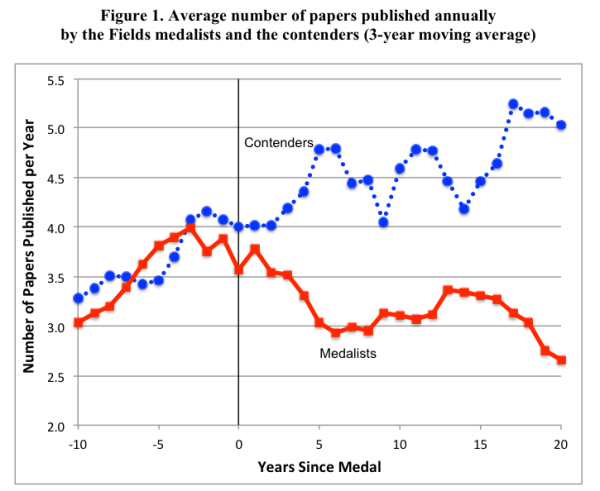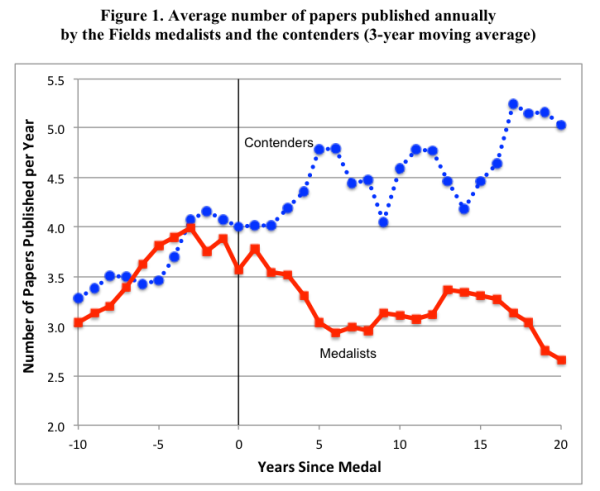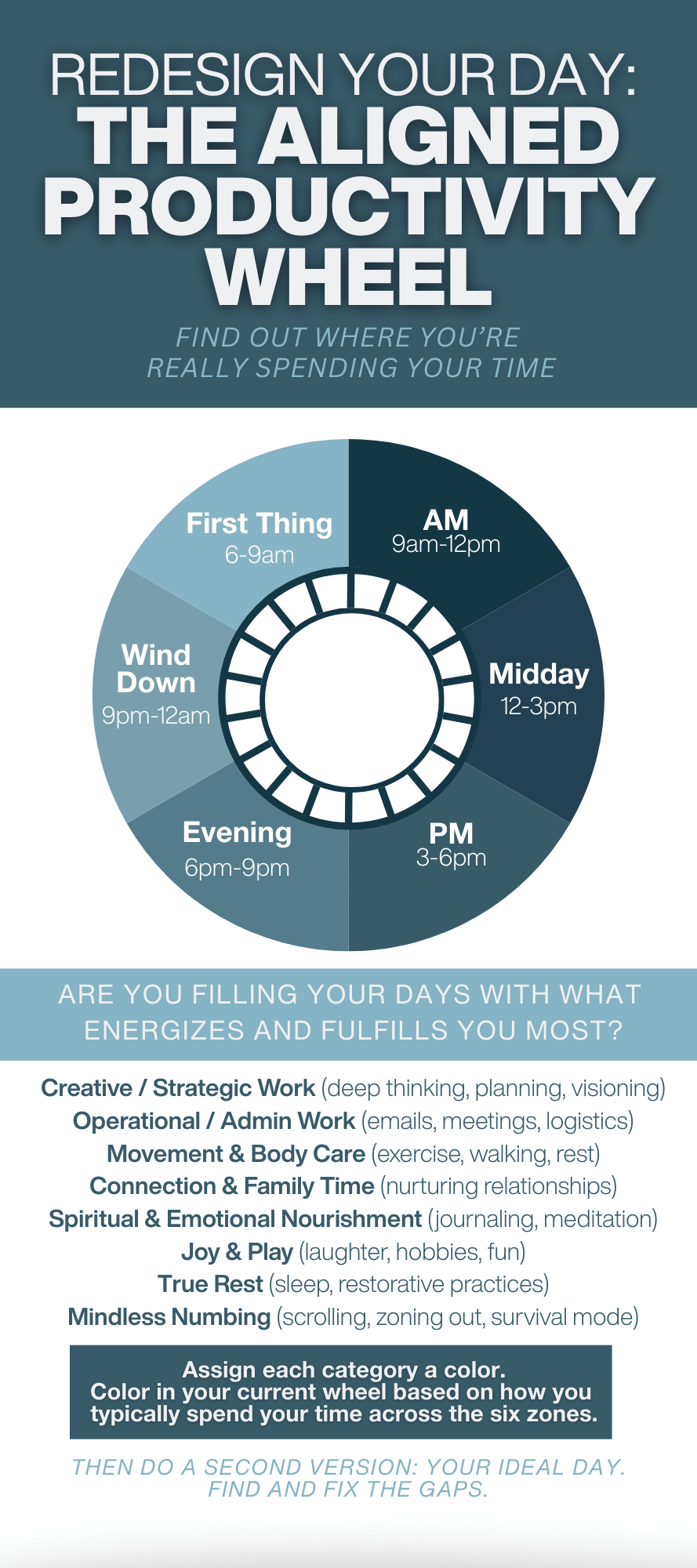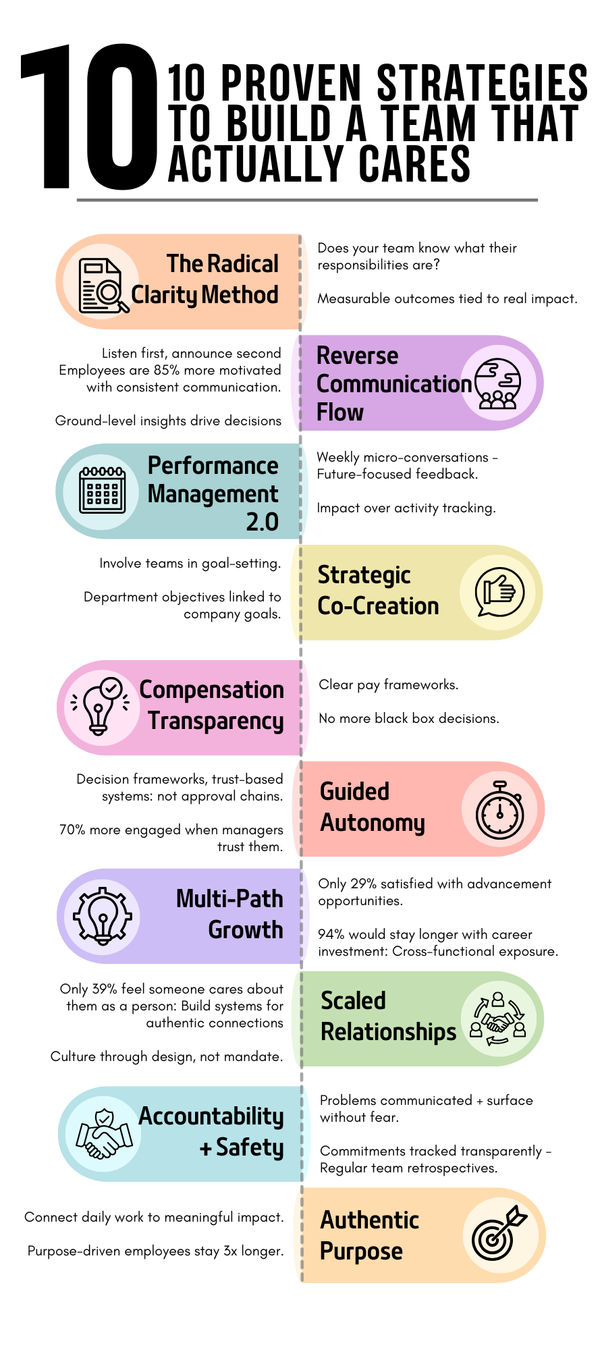
Do accolades like rewards and prizes improve our productivity or spoil it? Research on winners of the most coveted award in the mathematics field indicates it could be the latter.
George Borjas and Kirk Doran of Harvard and Notre Dame, respectively, studied the rate of published works in the years following a mathematician's receipt of the Fields Medal and found a significant productivity drop in the 20 years following a medal win. Compare the output of the medal-winners to that of the contenders who didn't take home the prize:

So do rewards make us rest on our laurels? Kind of. Business Insider cites the "wealth effect" at work -- how new opportunities due to prestige can make a winner more likely to opt for leisure activities -- but also the idea that winners tend to take bigger research risks in the future. So a top performer may increase his leisure after a significant accolade, but he's also more likely to go outside his comfort zone and take bigger intellectual and cognitive risks compared to lifelong specialists.










Member discussion